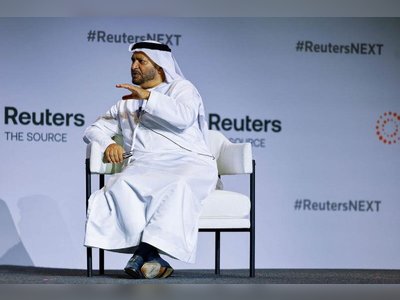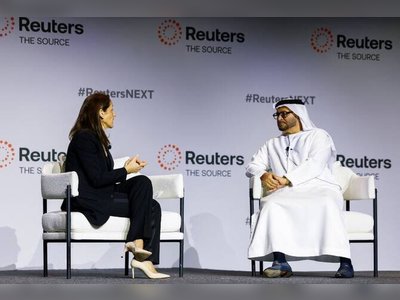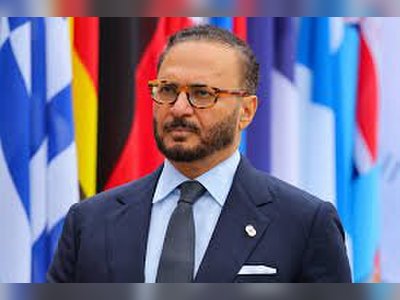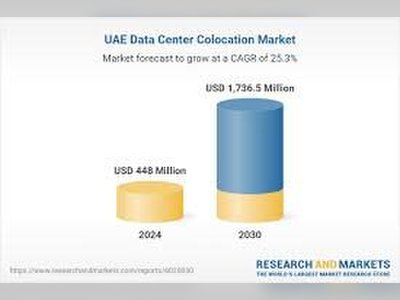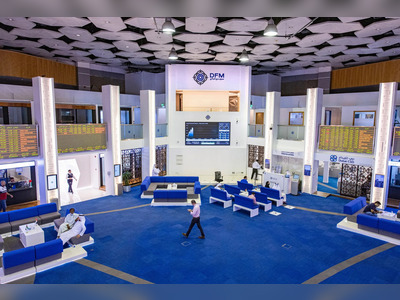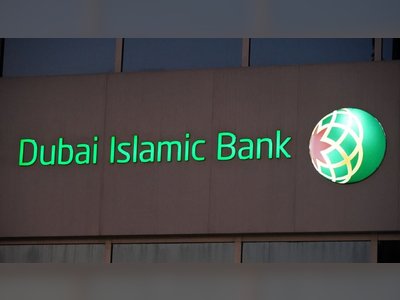
Expo 2020 Dubai: A Landmark Journey of Innovation and Resilience
Exploring the historical significance and achievements of Expo 2020 Dubai amidst global challenges.
Expo 2020 Dubai, the first World Expo to be held in the Middle East, Africa, and South Asia, marks a significant undertaking in the evolution of international exhibitions.
It emerged from a bid by the United Arab Emirates (UAE), which was selected to host the event over numerous competitors with longer histories in organizing large-scale events.
The successful bid is attributed to the innovative approach taken by the UAE, which aimed for comprehensive participation from all nations, aligning with the event's theme of 'Connecting Minds, Creating the Future.'
The event was initially scheduled for October 2020 but was postponed to October 2021 due to the COVID-19 pandemic.
This delay highlighted the challenges organizers faced, from logistical issues to the need for stringent health and safety measures.
Despite these challenges, the UAE's leadership, driven by a vision of unity and collaboration, pushed forward with the preparations, reaffirming their commitment to showcase resilience in the face of adversity.
Expo 2020 provided a platform for over 190 participating countries, facilitating global dialogue on pressing issues such as sustainability, innovation, and mobility.
The event's site, located on a vast area in Dubai, featured pavilions designed by various nations, each reflecting their unique cultures and contributions to the global community.
The UAE's focus on inclusivity and equal representation was a central tenet throughout the planning and execution phases.
Significantly, the Expo aimed not just to present innovations but also to inspire collaboration and emerging partnerships among nations.
The organizers crafted a narrative that encouraged visitors to engage with new technologies and solutions, addressing contemporary challenges within a global context.
Key areas of focus included renewable energy, environment change, and cultural exchange, highlighting the importance of cooperation in tackling global issues.
The event also served an economic purpose, as it was projected to attract millions of visitors, thus bolstering tourism and related sectors in Dubai and the wider UAE.
Before the pandemic, forecasts indicated that Expo 2020 could generate billions in economic returns.
The emphasis on revitalizing local businesses and forging international partnerships reflected a broader strategy to position the UAE as a global hub for innovation and entrepreneurship.
Another crucial aspect of Expo 2020 was its role as a cultural showcase, amplifying the voice of the region on the world stage while celebrating the diversity of cultures through art, music, and cuisine.
Numerous cultural performances and interactive experiences were integrated into the Expo program, promoting intercultural dialogue and understanding.
In a broader sense, Expo 2020 highlighted the ongoing narrative of the UAE's developmental journey.
Less than five decades since its founding, the country has transformed into a beacon of opportunity, attracting individuals from around the globe for work and collaboration.
This transformation is often cited as a testament to effective leadership, which has inspired not only national pride but a collective commitment towards future ambitions.
The experience of organizing Expo 2020 amid global crises has provided valuable lessons on adaptability and innovation.
As the world continues to navigate the repercussions of the pandemic, the event's legacy is expected to influence how future large-scale gatherings are envisioned and executed, fostering a spirit of resilience and creativity in the process.
Overall, Expo 2020 Dubai encapsulated a remarkable chapter in the nation's history.
It highlighted the challenges and triumphs of a society committed to meaningful global engagement and innovation, providing a framework for addressing future challenges through collective efforts.
It emerged from a bid by the United Arab Emirates (UAE), which was selected to host the event over numerous competitors with longer histories in organizing large-scale events.
The successful bid is attributed to the innovative approach taken by the UAE, which aimed for comprehensive participation from all nations, aligning with the event's theme of 'Connecting Minds, Creating the Future.'
The event was initially scheduled for October 2020 but was postponed to October 2021 due to the COVID-19 pandemic.
This delay highlighted the challenges organizers faced, from logistical issues to the need for stringent health and safety measures.
Despite these challenges, the UAE's leadership, driven by a vision of unity and collaboration, pushed forward with the preparations, reaffirming their commitment to showcase resilience in the face of adversity.
Expo 2020 provided a platform for over 190 participating countries, facilitating global dialogue on pressing issues such as sustainability, innovation, and mobility.
The event's site, located on a vast area in Dubai, featured pavilions designed by various nations, each reflecting their unique cultures and contributions to the global community.
The UAE's focus on inclusivity and equal representation was a central tenet throughout the planning and execution phases.
Significantly, the Expo aimed not just to present innovations but also to inspire collaboration and emerging partnerships among nations.
The organizers crafted a narrative that encouraged visitors to engage with new technologies and solutions, addressing contemporary challenges within a global context.
Key areas of focus included renewable energy, environment change, and cultural exchange, highlighting the importance of cooperation in tackling global issues.
The event also served an economic purpose, as it was projected to attract millions of visitors, thus bolstering tourism and related sectors in Dubai and the wider UAE.
Before the pandemic, forecasts indicated that Expo 2020 could generate billions in economic returns.
The emphasis on revitalizing local businesses and forging international partnerships reflected a broader strategy to position the UAE as a global hub for innovation and entrepreneurship.
Another crucial aspect of Expo 2020 was its role as a cultural showcase, amplifying the voice of the region on the world stage while celebrating the diversity of cultures through art, music, and cuisine.
Numerous cultural performances and interactive experiences were integrated into the Expo program, promoting intercultural dialogue and understanding.
In a broader sense, Expo 2020 highlighted the ongoing narrative of the UAE's developmental journey.
Less than five decades since its founding, the country has transformed into a beacon of opportunity, attracting individuals from around the globe for work and collaboration.
This transformation is often cited as a testament to effective leadership, which has inspired not only national pride but a collective commitment towards future ambitions.
The experience of organizing Expo 2020 amid global crises has provided valuable lessons on adaptability and innovation.
As the world continues to navigate the repercussions of the pandemic, the event's legacy is expected to influence how future large-scale gatherings are envisioned and executed, fostering a spirit of resilience and creativity in the process.
Overall, Expo 2020 Dubai encapsulated a remarkable chapter in the nation's history.
It highlighted the challenges and triumphs of a society committed to meaningful global engagement and innovation, providing a framework for addressing future challenges through collective efforts.

